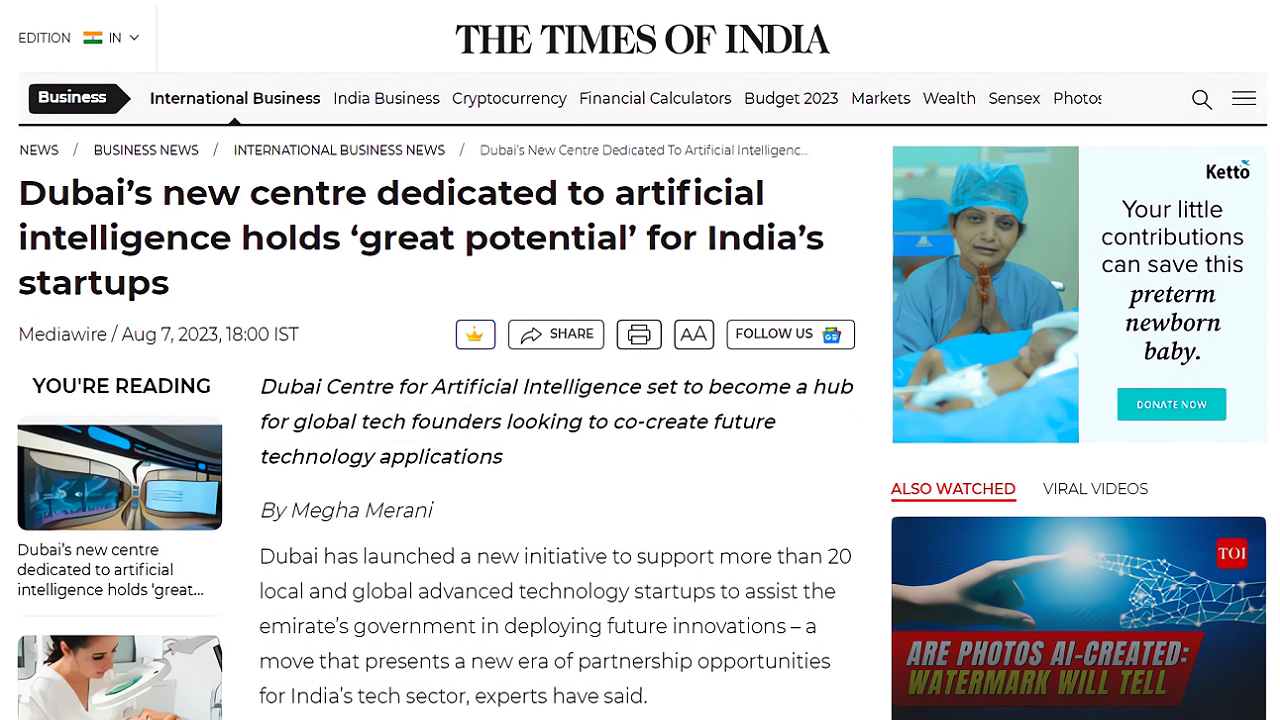Dubai Centre for Artificial Intelligence could prove to be an ideal hub for global tech founders looking to co-create future technology applications.
I was recently asked for my views on the opportunities for Indian AI startups in Dubai and my answer was, naturally, that Dubai and the UAE as a whole offers great potential for many AI startups. And I’m not just saying that because I’m based in the UAE. The crucial difference between the UAE and many other countries, is that it not only ‘talks the talk’, but it also ‘walks the walk’!
I am frequently find myself impressed by how fast the government moves to create new programmes that help its AI policies gain traction. Teams in government departments across the country are actively looking for the most innovative AI technologies and solutions all the time. So, if you’re the founder of an AI startup that solves a new problem for government, public services or national issues in general, there’s going to be someone, somewhere in a government department that would like to talk to you.
The UAE holds great potential for many AI startups, most of all because the government actually ‘walks the talk’!
The recently created Dubai Centre for AI, which was announced in June 2023, hopes to accelerate Dubai government efforts even further. The new centre has already organised innovation programmes in 30 different government entities to identify AI use cases and implement solutions. Meanwhile, in July the Dubai Future Foundation launched a programme to encourage pilot schemes for generative AI tech in government departments.
The UAE is, no doubt, a fiercely competitive technology market and developers do need to ensure their plans are grounded in reality. However, for the foreseeable future, there is that opportunity to engage with enthusiastic government departments and authorities that are on the lookout for new, innovative approaches.
You can read UAE-based journalist Megha Merani‘s full story in The Times of India here.




